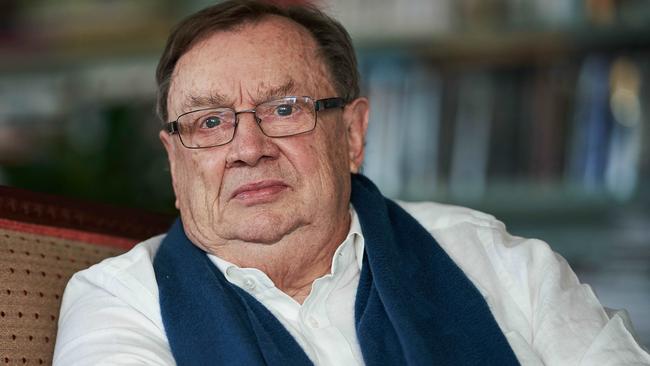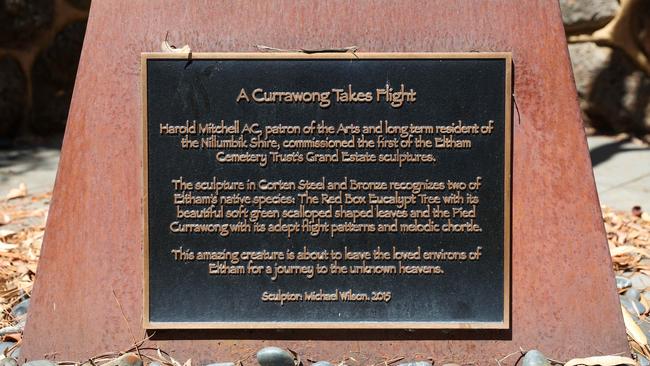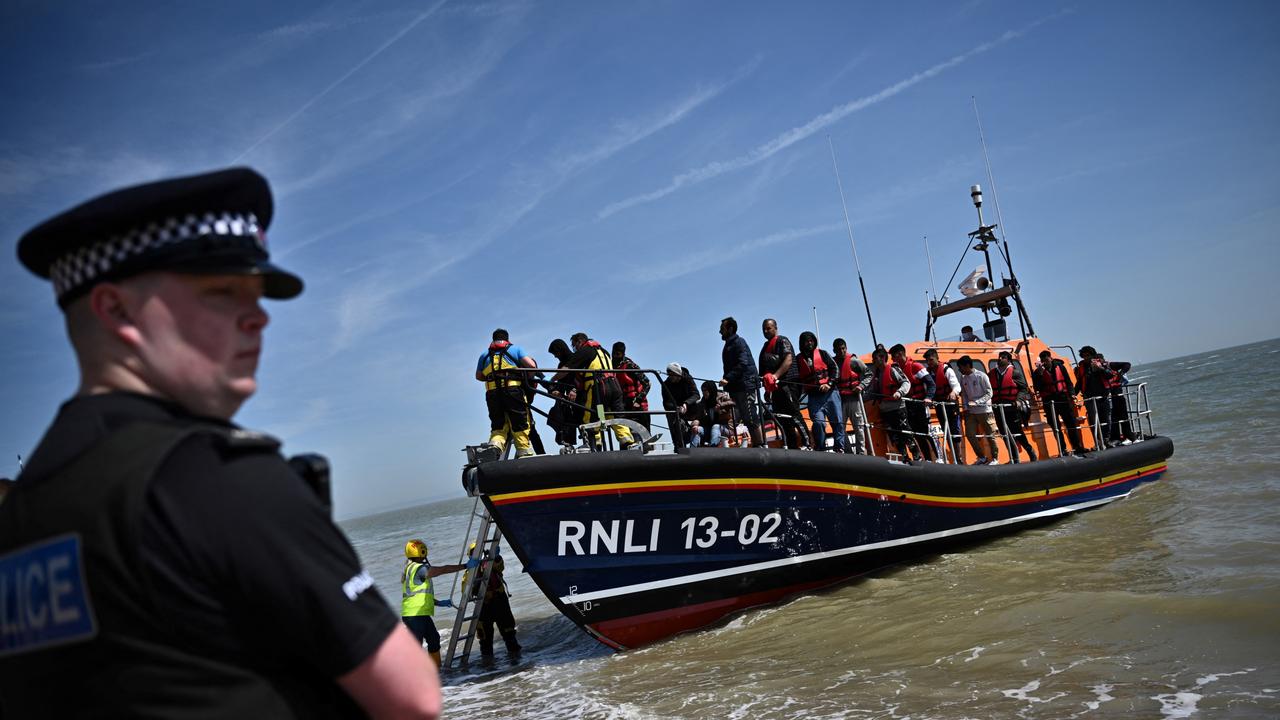Harold Mitchell: a brilliant businessman who invested in our community
Mitchell had his finger on the pulse of Australia. He knew all the players, all the politicians and he sensed the changes.

His critics reckoned he was flogging a dead horse. But those who knew him and had worked with him saw it differently. Harold Mitchell had just been made president of the Museums Board of Victoria when he announced it was offering for sale the naming rights of the Phar Lap Gallery in the Melbourne Museum.
Australia’s most famous, but long-ago-stuffed, racehorse Phar Lap had been the star of the museum since he went on display there in January 1933, less than three years after winning the Melbourne Cup. Mitchell reckoned the naming rights were worth $500,000 (at 2000 prices).
Ideas spun out of Mitchell as if he were a Catherine wheel. If he ever took a backwards step, no one saw it. He judged the worth of an idea in an instant. And he didn’t take well to being challenged about it. Not because it bruised his ego, but because he didn’t have the time.
At the cricket one day a friend approached Mitchell who shook the man’s hand and asked how were his kids, adding, “but don’t go through them one by one”. If it was rude, at least it wasn’t meant to be. Mitchell could seem brusque because he was busy. Busy running his media buying business – the biggest in private hands in Australia and with clients accounting for up to 10 per cent of all advertising dollars spent in Australia – and busy running museums, the Melbourne Symphony Orchestra, the Florey Institute of Neuroscience and Mental Health and the Melbourne International Festival of the Arts. He was also a board member of CARE Australia, the Opera Council, he chaired the Australia-Indonesia Council, was vice-president of Tennis Australia, and on the board of the New York Philharmonic and a dozen arts, education and philanthropic institutions.
Mitchell was like Benjamin Franklin, one of the founding fathers of America, drafting and signing the Declaration of Independence, while making time to act as a diplomat, an editor and printer and publisher, philosopher, inventor and the man who discovered electricity. Franklin’s motto was: “If you want something done, ask a busy person.”
And that’s what governments of either persuasion did with Mitchell.

He saved them money, sometimes made them money, but more importantly brought relief to so many people he would never meet.
His attitude to life and how brutal it could be were lessons learned early. Hard doesn’t do justice to the privations of his early life. His father was a woodcutter in Gippsland who moved to where the work was. Once a forest was finished, they moved to another. His dad moved from Trafalgar in Victoria’s east to Stawell, 360km to its west when Mitchell was 16. By then his mother had turned to drink and left.
Mitchell left school early also to work in the sawmill. He yearned for a job in radio which he enjoyed listening to in the days when so few people had a television. Thinking laterally, as he would for a lifetime, he applied for a job in advertising and went to Melbourne where he studied part-time at the Royal Melbourne Institute of Technology.
As he progressed in business, he drank vigorously to match these achievements. He too fell under the spell and, while quite young, decided that he should choose between alcohol and his marriage.
He chose the latter and was married to Bevelly for 50 years until 2014.
Mitchell put it curtly: “These are modern times – it’s what happens,” he said of the split that he insisted had been Bevelly’s idea.
Perhaps he turned to food in the absence of alcohol and he became a large man indeed. Like Queen Victoria, a short woman wider than she was tall, Mitchell ballooned over many years, the no-nonsense bullet-like intermissions of speech giving him plenty of time around a plate at so many business lunches.
It was Nine Network boss Kerry Packer who saved Mitchell the first time around when, in the early 1990s, he had been a guarantor on businesses he knew too little about and that failed. Packer bailed him out with a personal, no-interest loan.
Then it was Seven Network boss Kerry Stokes who saved Mitchell’s life when he told him that if he didn’t lose weight he would die.
Mitchell duly underwent lapband surgery and showed immense self-control to lose 70kg from his 165kg bulk.
It was about this time that Mitchell, as pro bono boss of Tennis Australia, negotiated a new broadcast deal with Seven for the rights to the sport. He won a sponsorship double the previous amount. But anyone living that business life accumulates enemies, and the Australian Securities & Investments Commission looked at it and charged Mitchell with 44 offences over the deal.
As a sign of the damage this did, when Mitchell attended the funeral of his friend Sisto Malaspina, the flamboyant Melbourne restaurateur murdered by a Muslim extremist in Bourke Street, in 2018, some wealthy and influential Australian businesspeople avoided Mitchell, who spoke at the ceremony.
In the end, three charges were proved and he was fined $90,000, but Justice Jonathan Beach of the Federal Court was scornful of ASIC’s case: “ASIC failed to come up with any plausible motive as to why, on its case, Mr Mitchell would prefer Seven’s interests over Tennis Australia’s interests,” he said while accusing ASIC of “confirmatory bias” and supporting conspiracy theories that lacked substance.
In 2010, Mitchell was appointed a Companion of the Order of Australia for services to the community, arts, health and education and as a supporter of humanitarian aid in Timor-Leste and Australia’s Indigenous communities.
Like all premiers, Steve Bracks, who led Victoria from 1999 to 2007, leant on Mitchell for advice and to make things happen.
Bracks said Mitchell’s efficient running of committees was legendary, that he’d get to the point quickly and insisted others do likewise.
“When he was chair of Melbourne Museum, he’d run them (meetings) in record short time, largely because anything that was superfluous was not required,” Bracks said.
“He was a great donor to the arts, but also when I left as premier, he’s one of the first people I saw and I said … I wanted some support in order to assist (East Timor prime minister) Xanana Gusmao.
“Before I could finish my pitch to him, he said ‘OK, you’ve got $500,000’.” This enabled Bracks to be an adviser in Dili and help set up the Civil Service Commission and the anti-corruption commission.
“It was Harold Mitchell who put his shoulder to the wheel and did that. He didn’t seek any recognition for that. He just did it.”
Both Bracks and Mitchell were awarded East Timor’s Solidarity Medal last November.
Bracks spoke to Mitchell just last week “in relation to Victoria University matters because he was the donor to Victoria University for the Mitchell Institute, which is the $10m he contributed to setting up an educational research function”.
Bracks knew Mitchell when they used to dine at an Albert Park restaurant that had a linguine dish named after him.
Singer Mike Brady, who worked with Mitchell from the 1970s, said “he could always see the future – he could read the tide of politics ”.
Mitchell had his finger on the pulse of Australia. He knew all the players, all the politicians and he sensed the changes. Mitchell once said of Kerry Packer that he, too, knew what the average Australian was thinking even though, according to Mitchell, he didn’t know any of them.
“He never forgot his roots,” Brady added about Mitchell. “And he was massively connected and generous – we remained friends throughout our working careers.”
Brady once invited Mitchell to a meeting about a business proposal. Mitchell was surprised to see five other people in the room. He shook their hands, said hello to each off them and then announced: “That’s the small talk out of the way. What’s the deal?”
In the late 1990s, when Mitchell was in charge of the Melbourne International Arts Festival, I asked him if on opening night he was attending the obscure act Gavin Bryars who was performing at Melbourne Town Hall. He said that he and the premier and the board were all attending the opening opera. Bryars masterwork, Jesus’ Blood Never Failed Me Yet, is an acquired taste with a 1971 loop of a London vagrant uttering that single line while an orchestra sweeps over it and retreats.
The next day, I sent Mitchell the CD on which Tom Waits performs a coda and which runs 74 minutes, explaining to him what he had missed. Days later, all the senior News Corp ad sales executives from around Australia gathered in his South Melbourne boardroom for the most important meeting of the year.
He plonked a small portable CD player on the boardroom table and pushed “play”. He returned to the room 73 minutes later just as it faded out and said: “If you think that’s been a waste of time, blame Alan Howe.”




